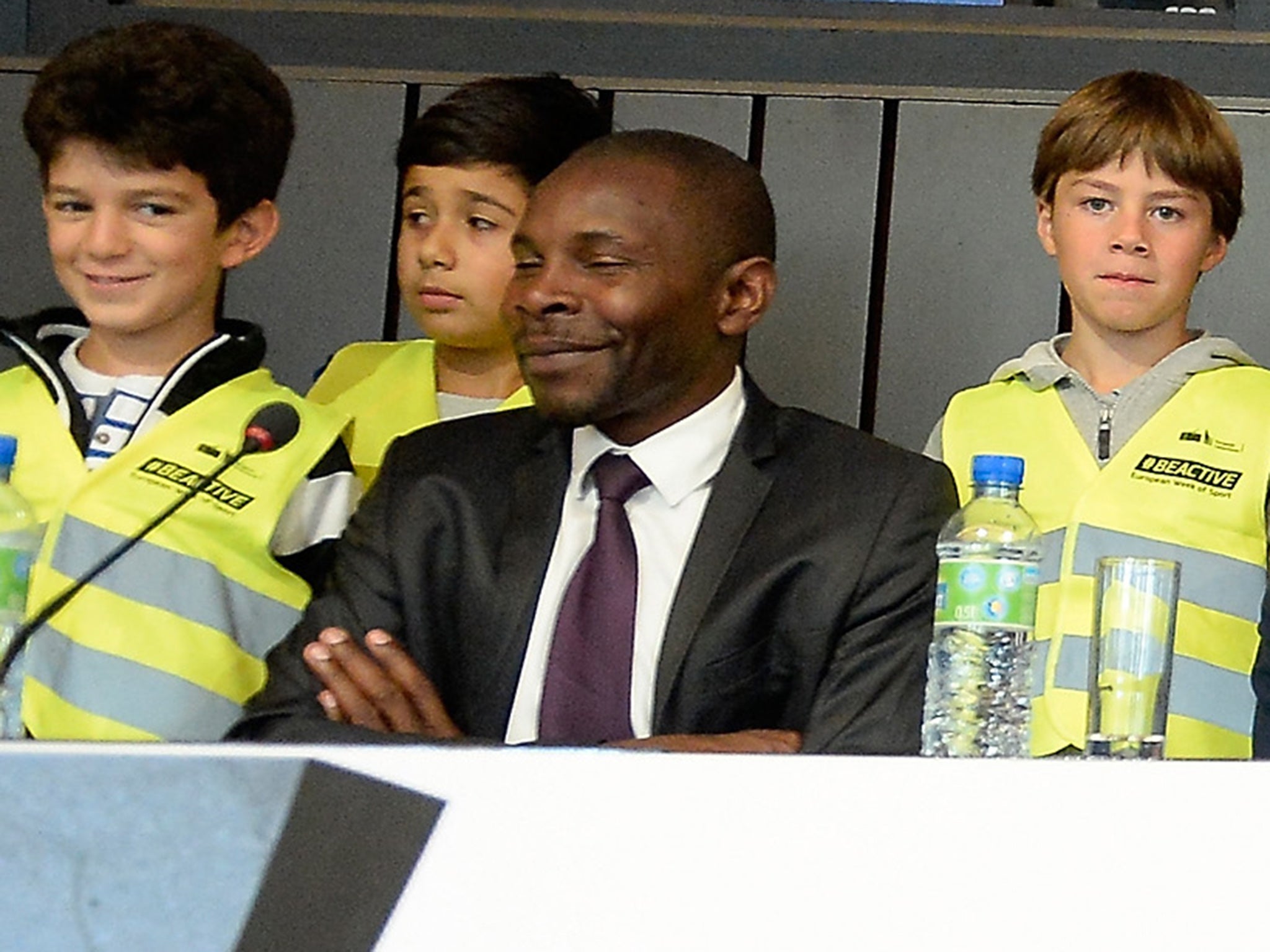Fifa to investigate claims that charity chief charged for non-existent trials
EXCLUSIVE: Former Cameroon international said to have benefited from scams the UN-backed body he founded was set up to prevent

Football’s only anti-trafficking charity is set to be investigated by Fifa for charging a player for trials at clubs which did not take place and for five-star hotels he never stayed in, the exact scam it was founded to prevent.
Foot Solidaire, which has been operating since 2000 and is well known in the sport’s circles, was found to have taken more than €3,000 from a 20-year-old Japanese player for the chance to win a contract at a French club.
Jean-Claude Mbvoumin, the former Cameroon international who founded the United Nations-backed charity, was exposed in a new book, The Lost Boys: Inside Football’s Slave Trades.
It is claimed that Mbvoumin not only encouraged the player to leave his native Japan but also deployed the very methods to extract money that his charity had made its name highlighting.
Football trafficking is a scourge of the modern game, with unscrupulous agents and scouts luring thousands of players, mostly from Africa, to Europe every year on the false promise of a trial or contract for money.
Foot Solidaire has claimed that this has happened to 7,000 players in nine years since 2005 to France alone. With no club and nowhere to stay in a foreign city, young men are vulnerable to crime, drugs and even prostitution.
Fifa’s Transfer Matching System (TMS), which was set up in 2010, with one of its aims to prevent trafficking, will now decide if Foot Solidaire broke any rules. Information, including emails between Mbvoumin and the player and receipts of transactions, has been passed to the TMS compliance unit.
A TMS investigator said: “This is a problem. It’s completely counter to what Foot Solidaire are about. It may be a matter for the immigration authorities to see if any laws have been broken.”
One question they will probably want answered is why Mbvoumin, who was not a licensed agent, acted as a middle-man for the player to earn a contract at top-flight French club Angers in 2011.
A trial had been arranged by Mbvoumin and the club wanted to make the signing. But when the player, who was 18, returned to France to sign, there was no contract and he found himself in a position Foot Solidaire maintains it exists to prevent.
Receipts show that the young hopeful, from Nishio, on Japan’s Pacific coast, paid Mbvoumin €3,080 over the course of 11 months from September 2013 to July 2014. The money, the player claimed, was for accommodation, trials at clubs in France and travel for Mbvoumin to visit clubs where the trials would be held. It was sent via Western Union and the French postal service.
The first payment, for €700 on 5 September 2013 was, it is alleged, for trials at four clubs: Tours, Chateauroux, Evian and, once again, Angers.
“I never had any trials and never went there,” the player said. “It was a complete waste.” A further payment of €250 was made on 2 November the same year for accommodation for the Angers trial.
Most disconcerting is a payment of €400 on 27 March 2014 for a five-star hotel for the player to attend an anti-trafficking conference staged by Foot Solidaire and supported and hosted by the UN in Geneva.
The player travelled specifically from Japan to attend because he was told there would be a charity match involving Yaya Touré and Samuel Eto’o, and he was under the impression he could be scouted. The game did not take place.
“You can send 400 euros on Thursday for your extra hotel,” Mbvoumin wrote in an email. “This is a five-star hotel. It’s called Hotel President Wilson in Geneva.”
But the player stayed at a Best Western Hotel, a four-star, which charged around €120 per night, and he had to share a two-bed room with three others. The difference was not reimbursed.
One trial organised by Mbvoumin did take place. It was at Brest, the Ligue 2 team, and the player paid €1,000.
Mbvoumin, who failed to respond to questions about each of the supposed trials and the hotel charge, insisted he had done nothing wrong and said the money was for reimbursements and expenses. “I am clear in this regard and I have nothing to reproach myself,” he said.
Join our commenting forum
Join thought-provoking conversations, follow other Independent readers and see their replies
Comments